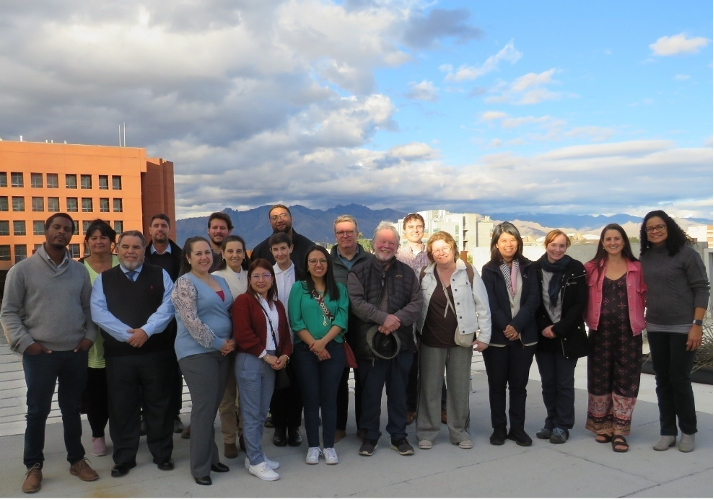The Climate Adaptation Research Program (CARP), which is funded by USAID, officially kicked off its activities in October 2023. After months of preparation and online meetings with our regional partners, January 2024 was a special time for us. The first in-person global meeting took place in Tucson from January 22-26, where our CARP University of Arizona team welcomed our regional teams from Africa, the Pacific Islands, Latin America, and the Caribbean. Our colleagues from USAID, Stellenbosch University, Auckland University of Technology (AUT), Consejo Superior Centroamericano (CSUCA), and São Paulo Research Foundation (FAPESP) got together for a week of discussions, learning, and camaraderie.

The CARP team met to strengthen partnerships, strategize around CARP, and plan future actions to successfully implement the program in the different regions. The specific objectives of this meeting included establishing a common vision for CARP, identifying the main research award priorities, reviewing and agreeing on our expectations and goals, and addressing any anticipated challenges in implementing this global initiative. During this time, our partners also had the opportunity to connect with colleagues from different institutes at the University of Arizona, including the Arizona Institute for Resilience (AIR), Arizona International, the Arizona Initiative for Resilience and International Development (AIRID), and the Indigenous Resilience Center, among others, to explore potential collaborations that could extend beyond CARP.

Photo 2. CARP Global team during one of the workshop sessions.
CARP operates uniquely by breaking the current narrative, where the University of Arizona co-implements the program with the regional institutions. Therefore, each region has a Regional Coordination unit that works collaboratively with the Program Coordination unit at the University of Arizona. In this first meeting, all partners had the opportunity to interact in person, strengthen relationships, learn from each other based on previous experiences, and identify potential collaborations and synergies that can benefit the Global South. As a Global team, we defined common ground and tailored CARP to the unique and different contexts of the targeted regions.
CARP has the potential to make a significant impact in terms of climate adaptation and disaster risk reduction in these regions. All the partners involved recognized this opportunity as unique and important. CARP aims to fill an important gap in these regions that face difficulties in obtaining funding for young scholars conducting applied research on these topics. Ultimately, CARP hopes to contribute to creating more climate-resilient communities in the Global South.


